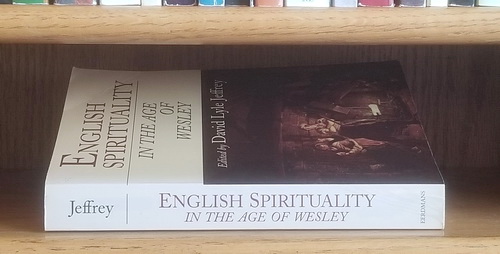FB17 – The Early Evangelicals
 While it may surprise some, Evangelicals were first identified not only as religious revivalists, but as social reformers motivated by deep Christian faith and personal discipline.
While it may surprise some, Evangelicals were first identified not only as religious revivalists, but as social reformers motivated by deep Christian faith and personal discipline.
Early key leaders include John Wesley (founder of Methodism), George Whitefield (Anglican preacher/revivalist and reformer), William Wilberforce (parliamentarian credited with ending the British slave trade), Hanna More (writer, philanthropist, educational reformer), John Newton (slaving ship captain turned pastor who wrote lyrics to “Amazing Grace”), and others.
In his book, English Spirituality in the Age of Wesley (1987), Jeffrey summarizes the deep and abiding influence of these reformers:
- In a frivolous age–an age of licentiousness and madness more than of reason, of rampant insincerity and hypocrisy in the church–Wesley and his followers in the evangelical movement at large had in fact effected virtual cultural revolution. The tremendous work of prison reform, begun back in Oxford in the first days of the Holy Club, and the parallel work of ameliorating the conditions in mental institutions and hospitals constitute by themselves one of the greatest practical witnesses to the gospel that has ever been known, and countless thousands have been benefited by the mercy of God which flowed from these efforts. In little coal mining communities, mill towns, and seaports all across the British Isles, people of the poorer classes were given both eternal and temporal benefits of the gospel, acquiring with their conversion, Christian education, and spiritual fellowship a new and immeasurably enhanced sense of human dignity. The image of God was being restored in the downtrodden and oppressed, the fatherless and widows were being comforted, and prisoners and the sick visited with kindness on an unprecedented scale. Wesley’s own abiding contribution had been to encourage a submission to the most rigid demands of the gospel in order that the gospel might be seen to be spoken in life, not merely in a show of words, and the fruits of his witness made a rich harvest all over the British Isles. By the end of this period the effects had been felt everywhere, and, as Canon Overton has put it, a substantial body of the populace thought “that to be serious and to be Evangelical were only different ways of saying the same thing.” (Pp 206-07)
Accounts of the lives and legacy of these leaders are readily available today in various media formats, such as the movie Amazing Grace (2006) featuring Newton and Wilberforce.
First published on Facebook Page (My Reads and Views): The Early Evangelicals
First published here: 2022/01/02